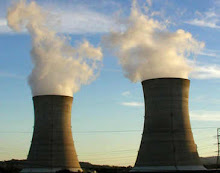What is environmental injustice and how are the presidential candidates expected to respond to this dilemma?
In the face of global warming, the gas crisis, and dangerous health risks emerging from
Barack Obama has committed to making solutions to global warming a top priority. With a history of supporting legislation regarding environmental action, Obama has stood as a provider of solutions for those communities who suffer from adverse environmental conditions. In 2005, he introduced the “Healthy Communities Act,” which included several legal and socio-economic establishments. The provisions of an environmental heath report card, environmental health research, environmental health development in the workforce, and others all serve as steps forward in combating the jeopardous environmental conditions of low-income and minority communities. Recently, as outlined in their plan, Obama and Biden have vowed to continue to fight for environmental justice by cooperating with the EPA in providing aid to low-income communities. This aid will appear in the form of small grants, which communities need to adequately address local environmental problems, as well as the provision of the legal ability to challenge and reject procedures or programs that negatively affect the environmental health of the community.
A significant distinction emerges when examining McCain’s stance on environmental issues. Although McCain shows support of the effort against global warming through his climate change adaptation plan and his cap and trade policy, he does not adequately concentrate on the wider range of environmental dilemmas that exist. He has demonstrated a lack of effort to acknowledge or address the fact that toxic waste plants and processes are unfairly distributed throughout low income and frequently minority areas, and this sends a clear message to that portion of the population that is concerned with environmental equality throughout all communities. Even as we seek solutions to diminish, halt, and reverse the calamity of global warming, it remains equally important that we seek ways to protect the people from pollution, and this is a facet of environmental action that McCain has failed to recognize. McCain has not expressed intention to battle environmental injustice during his entire campaign. It is doubtful that environmental justice will appear as a legislative priority if McCain becomes President.
Although the environmental crisis is one that impacts the entire globe, the
For Further
“Healthy Communities Act of 2005.” Retrieved from http://groups.msn.com/EnvironmentalJusticeCoalition/obamaclinton.msnw. 16 October 2008.
“Barack Obama and Joe Biden: Promoting a Healthy Environment.” Retrieved from http://www.barackobama.com/pdf/issues/EnvironmentFactSheet.pdf. 16 October 2008.
“Climate Change” Retrieved from http://www.johnmccain.com/Informing/Issues/da151a1c-733a-4dc1-9cd3-f9ca5caba1de.htm. 16 October 2008.

No comments:
Post a Comment